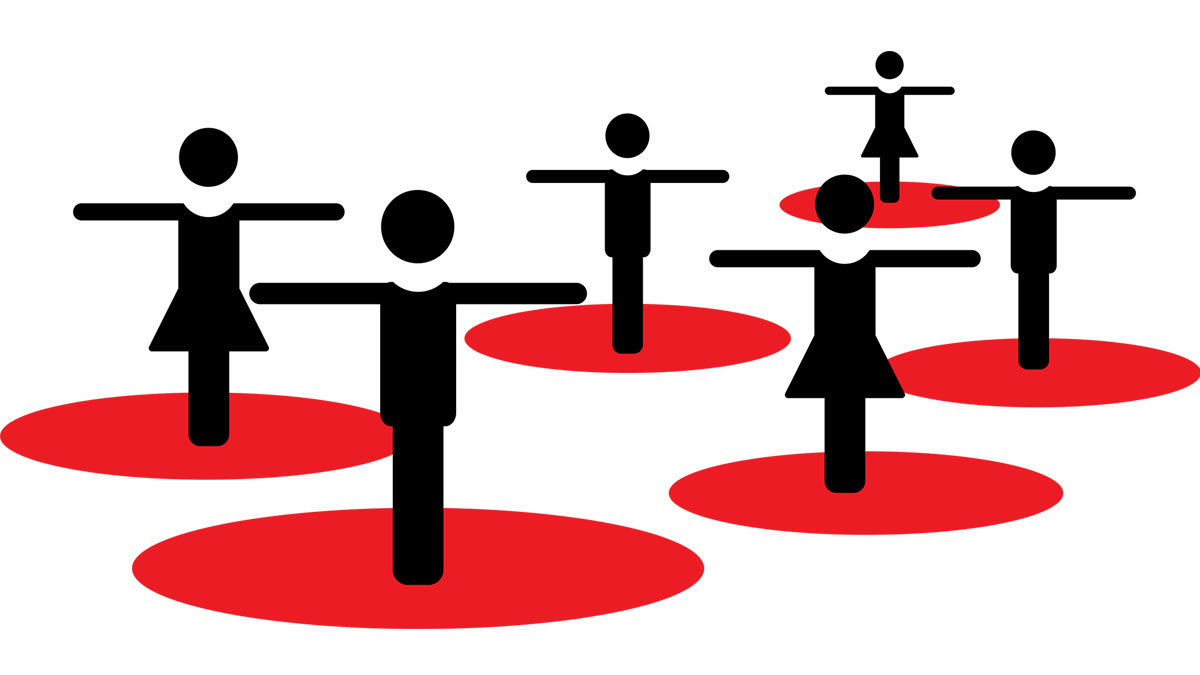Life as we knew it changed in mid-March. The regular hum of the hustle and bustle now seems like a distant memory. To be able to hug a loved one, shake a hand or bring your child to school are all things we took for granted. As we navigate social distancing, there are positives and negatives; a lack of contact can affect mental health, but people are finding ways to prevail while keeping their distance in an effort to curb the spread of COVID-19.
“Human beings are social and interactive entities, and we do not do well when we’re isolated from other people,” explained Dr. Jeffrey Cluver, M.D., medical director for behavioral health at Trident Medical Center. “One thing I was often asked to talk about before this got started is if people’s increasing use of social media is potentially bad for us. Before COVID-19, my mantra was, ‘Yes, it is; we’re supposed to be interacting face to face. Humans need touch.’”
Dr. Cluver’s opinion changed when the guidelines for social distancing became the new norm.
Pam Manning, LBSW, LPC, VSP, a therapist with the Safe Homes Rape Crisis Coalition, likened the reaction of many people to the current situation to be much like that of a trauma victim who has experienced significant loss.
“Many people have been in shock or denial while others have been adhering to recommendations from people they think should be ‘in the know,’” she explained. “The drama of a pandemic of this magnitude has not been seen before in recent times, thus the issues people are facing have been compounded by the mixed messages received from our leaders and the many sources of misinformation that are being spread. I call this type of mixed messaging ‘crazy making,’ as we feel punished by whatever path we choose to take in the midst of the crisis. Fear of job loss and how to provide for ourselves and loved ones; loneliness; as well as fear of contracting the virus ourselves and dying have increased our need to sift through a myriad of issues.”
Manning has noted a significant increase in overall anxiety and depression, as well as the need for people to examine their core values.
“Many are finding that they need to focus on friends, family and community, work off the tension via exercise or just share their feelings with a trusted friend or a professional. Some have needed to consult with a physician and be screened for medicine to help them cope during this period of uncertainty,” she said.
Dr. Cluver recommended that people try to shift their lifestyles in an effort to preserve their mental health.
“I’ll compare this to what we know in Charleston. We’re used to preparing for hurricanes. That’s about a week of preparing and hunkering down or evacuating. This quarantine has its similarities, but instead it is for months. We can’t approach it with the same mentality. This is a shift in lifestyle; the best thing to do is to make changes and get used to it,” Dr. Cluver explained. “People are exhausted and tired, and there is this fatigue setting in because this is not a normal and healthy way for humans to live. For many people, a drain on resources adds to the fatigue – what if you’re making less money or lost your job? There are countless negative mental health impacts.”
But social distancing also opens the door to opportunities for healthy improvements. People have been forced to slow down, allowing time to enjoy opportunities in life that often got overlooked amid the go-go-go mentality of pre-COVID-19 life. Things like walking, gardening or parents playing outside with their children between school and work breaks are all ways that people are boosting their spirits while keeping their distance from others. Neighbors are finding new ways to connect across the distance, from chats across the hedges or across the road to picking up a guitar and playing tunes that twinkle through yards and brighten their neighbors’ days.
Not to be overlooked, social media and internet technology are now the glue that hold together families, schools, jobs, health care and more. From babies to centenarians, we are peering at each other’s faces through platforms such as Zoom, Webex, FaceTime and Google Hangouts. Though e-learning can’t replace connections made in the classroom, teachers and students continue course material. Employees join conference calls with their dogs barking or kids playing in the background. Families spread across the country now meet online to virtually toast or have dinner together.
“Of course, in-person and direct contact with others is best for our mental health, but any other way is better than none,” continued Dr. Cluver. “Using the phone is fine, but the human brain likes to interact with people and see them, see expressions and interactions – it actually does make a difference.”
So while we must remain physically distant, we are not being cut off from social contact. Make the most of it by making healthy choices. Cherish this rare and unprecedented time when staying home can help in the fight against COVID-19 and simultaneously open a much-needed opportunity to slow down and appreciate things like the outdoors, our families and the gift of time.
These times are indeed stressful. If you are experiencing loss of sleep, feelings of helplessness, extreme negative thoughts or thoughts of suicide, there is hope. This is temporary and you are not alone. Seek help from a medical professional or contact the National Suicide Prevention Lifeline at 800-273-8255 to talk through it. This is an unprecedented time, but someone can help.
By Anne Shuler Toole
